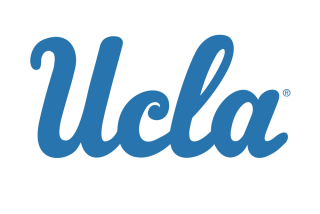USC Among First Schools to Tackle Drug Testing; NCAA May Enact a Plan
- Share via
HONOLULU — Drug problems involving professional athletes and subsequent punitive measures don’t fall into the category of startling news anymore. But what about college athletics, a relatively quiet front in this area? If drug abuse is a problem of society, what are universities doing, if anything, to address it?
Some schools, such as USC, have started drug testing programs. It’s an institutional matter, and the findings are confidential.
But drug testing at the college level may have a broader scope. The NCAA doesn’t have a drug testing program. But it may enact one, banning athletes who test positive from championship or postseason competition. The issue will be discussed at an NCAA meeting next month in New Orleans.
USC began its drug testing program last fall with random testing of male and female athletes in scholarship sports. Two other schools in the Pacific 10 Conference, Arizona State and Oregon, have similar programs, as do some other schools throughout the country.
“The concerns relative to drug abuse in athletics, no matter how small it is, is an arena where we should be taking a stand,” USC Athletic Director Mike McGee said. “It is my view that an institution such as USC needed to show that concern for our athletes. Also, the university is in a position of exerting some positive influence on the whole drug abuse problem in athletics. We should be making that kind of statement.
“As a result, we met with representatives from all of our sports teams and looked across the country on what was being done and, although fledgling, there were some very good models.
“From all that came a policy decision not only with the administrative staff but the medical people as well. We involved our School of Pharmacy, which has been working on major new programming on drug abuse. It was timely as far as that was concerned. A proposal was presented to President James Zumberge and it was implemented at the start of school in the fall.
“In addition there is an education program for drug and alcohol abuse for each of the teams and also counseling in the event of a problem or positive testing.”
McGee said tests are associated with physicals as athletes enter a competitive season, such as the first ones administered to athletes in football and women’s volleyball. There are three tests, at least two that are unannounced, during the year, with retests as indicated.
Testing is done in the clinical laboratory in the School of Pharmacy, which has an extensive verification process, according to McGee.
McGee said athletes are basically being tested for the evidence of street drugs such as amphetamines, cocaine, heroin and marijuana.
“We can’t just say they (tests) are exclusively for street drugs, though,” McGee said.
The USC athletic director said the school’s drug testing list is not as broad as the one proposed by the NCAA. Proposed banned drugs by the NCAA include psychomotor and central nervous stimulants, anabolic steroids, diuretics and street drugs.
There could be a problem regarding the legality of such testing procedures, a possible violation of an athlete’s civil rights. It has been learned that the University of Washington has backed off from a drug testing program for this very reason.
“There are always questions associated with this,” McGee said. “We’ve been very careful to protect confidentiality and validity on the tests. There are quite a few schools now that are testing. Generally, there is an acceptance among our attorneys that we are within legal bounds.”
McGee said he has received some positive feedback concerning USC’s drug-testing policy.
“After we informed the athletes we were going to test, we got a call from someone at a local high school, a person who was very much involved in the counseling of precollege students. There have been considerable drug abuse problems at the school. That person wanted to express appreciation for the kind of support this problem provided them.
“The comment was that it gives our athletes a reason to say no. In other words, if I want to go to USC and be involved in the athletic program I’d better not be involved in drugs usage. I shared that with our athletes.”
McGee says it’s only his opinion, but it’s likely that the NCAA will adopt a random drug testing policy that could affect the eligibility of athletes in postseason and championship events.
It was recently reported that USC committed 30 NCAA rules violations resulting in the school forfeiting seven football scholarships, four in 1986 and three more in 1987.
The Times has learned that 21 of the 30 violations were related to the illegal recruitment of Dan Quinn, a linebacker from San Dieguito High of Encinitas, who is now attending Notre Dame.
USC was also cited by the Pacific 10 for “improper and excessive use of complimentary tickets.”
More to Read
Fight on! Are you a true Trojans fan?
Get our Times of Troy newsletter for USC insights, news and much more.
You may occasionally receive promotional content from the Los Angeles Times.






